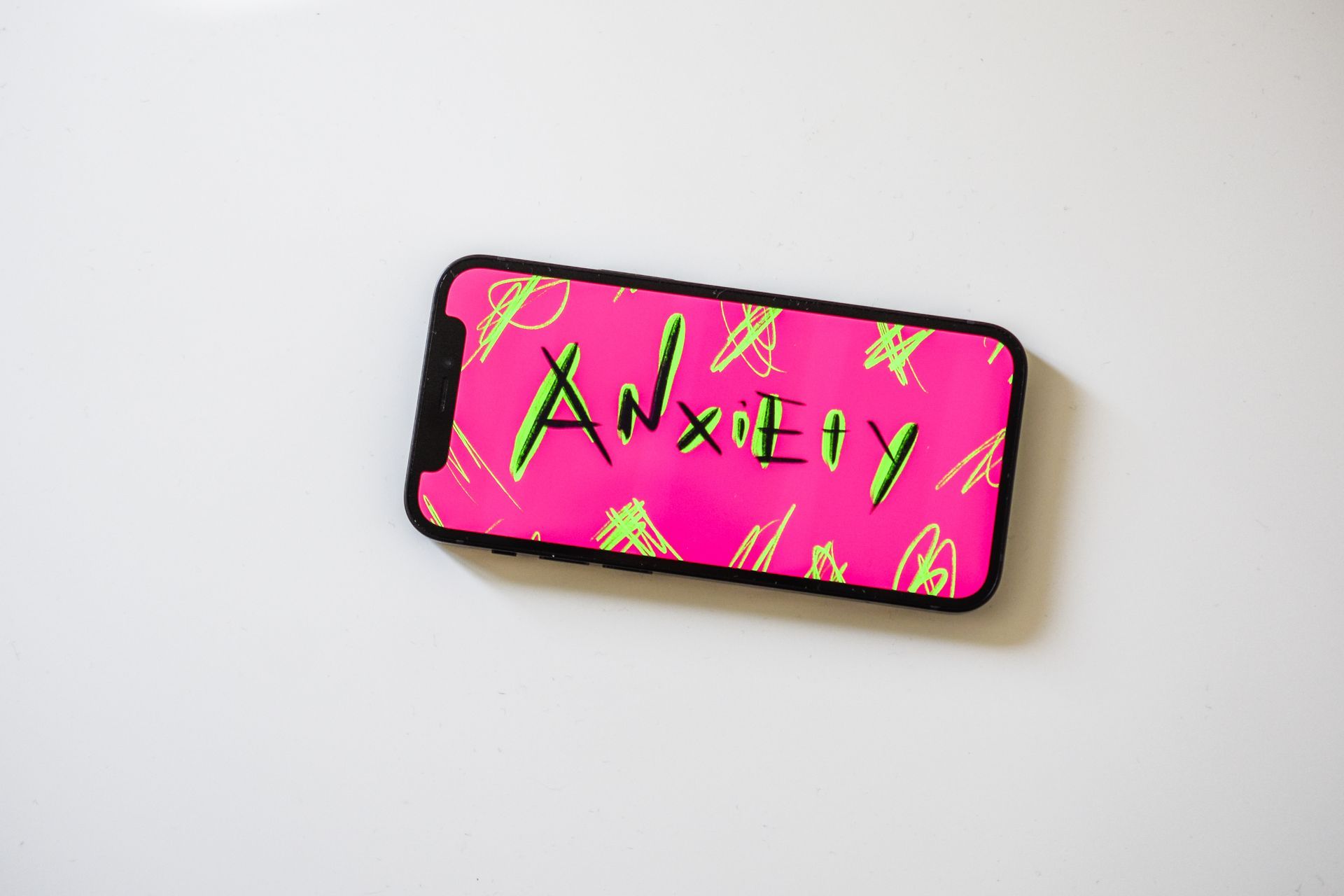“If I don’t check every single item on my to-do list, I have failed”
“I can’t just leave things half way done”
“I won’t feel okay until I can function as well as I did before my diagnosis.”
“Good enough doesn’t cut it”
“I won’t feel better until my pain is completely gone”
“I need to go back to feeling completely normal”
“I can never have a good day if I feel any type of pain”
Do some of those sound familiar?
These are all examples of all-or-nothing thinking.
In this first part of my thinking trap series, I want to talk about the infamous all-or-nothing thinking trap!
All-or-nothing thinking is a cognitive distortion, also called a thinking trap or unhelpful way of thinking. *Breaking news* It is something that we all do. If you are a human being, you’ve engaged in all-or-nothing thinking at some point in your life (and it’s likely to have happened more than you realize!)
Read on to know more about what it is and how it can lead to uncomfortable feelings of anxiety, shame, disappointment, or low self-esteem.
What does all-or-nothing thinking look like - A "5-star review and nothing less" type of thinking
All-or-nothing thinking describes a very polarized and rigid way of thinking about ourselves and the world.
When we think in all-or-nothing way, there’s no middle ground, no compromise, no good enough, no shade of grey. Things have to be just so. We have to be perfect. We have to nail it or else we have failed. It’s a very uncompromising way of thinking.
All-or-nothing thinking is not uncommon (at all!). Most of us sometimes fall into this “thinking trap.” However, when it becomes one of our default way of thinking, it can get us in trouble.
How you
feel when you fall into an all-or-nothing thinking trap (cue anxiety)
All-or-nothing thinking is a very dichotomized and extreme way of thinking. It can feel like you’re either right or wrong.
You are either a failure or a success. You either succeed 100% or it doesn’t count. AT ALL. Nada. Nothing. There’s no happy medium. No “pat on the back” for doing a good enough job. Nope.
Think about it. How would you feel if the following thoughts were running wild in your mind like an app on your phone you never closed:
“I’ll never feel normal until my IBS symptoms are completely gone”
“I didn’t meditate every day this week. It was an epic fail.”
“I can’t get it all under control. I feel like a failure.”
If that was the script running into your mind, my guess is that you would be feeling a mix of anxiety, frustration, disappointment, sadness, with a hint of shame! All-or-nothing thinking doesn’t leave much room for self-compassion and often leads to feelings of inadequacy, sadness, and anxiety.
What you
do when you fall into the all-or-nothing trap (cue inadequate support and over/underdoing things)
Going back to the examples above, think about how you’re likely to respond to those thoughts, and how they might impact your behaviors. All-or-nothing thinking is all about the extremes (again, think failure vs. success). It is therefore not surprising that thinking this way is likely to lead to very extreme behaviors.
All-or-nothing thinking can lead you to overdo things (hello overachievers out there in the world!), sometimes at a high cost to you (cue burnout and exhaustion), as you strive to deliver an unwavering five-star performance. At times, all-or-nothing thinking can also lead to inaction because the perfect standards you set for yourself are overwhelming and the idea of not being able to deliver on that five-star performance doesn’t feel okay. So you stall, you procrastinate, you just don't do anything at all!
If you are reading this and feeling like this sounds a lot like you, it is possible that you’ve fallen into an all-or-nothing trap at some point! And interestingly enough, all-or-nothing thinking is very tightly linked to perfectionism. If you are a perfectionist, or recovering perfectionist, you are likely no stranger to the feeling that anything less than perfect is not worthy of your time, cringing at the idea of settling for “good enough.”
All-or-nothing thinking can also lead to isolation. Most often, it is tied to the idea that in order to succeed, to be "perfect", you must do it alone, therefore making it less likely that you'll reach out for support.
All-or-nothing, IBS, and anxiety – The perfect storm
All-or-nothing thinking might get you in trouble when you’re navigating the stress of life with IBS. Having high, often unrealistic expectations of perfect outcomes (whatever that even means) can set you up for feelings of inadequacy and increased anxiety.
“I won’t be better until the pain is 100% gone”
“I didn’t do well with relaxation this week. I skipped two days. That messed up the whole week.”
“I don’t want to start dating until I’m 100% better”
“Things won’t feel normal until my IBS is completely gone.”
This last thought seems particularly salient in the clients with IBS I work with.
The idea that life without IBS symptoms is the “normal” standard to aim for and that anything less than that is not normal and most definitely not acceptable seems particularly strong in many folks living with IBS. And as you can now tell, it is a very all-or-nothing way of thinking about health.
You either feel “normal” or “not normal”. And often times,
the implied consequence of not feeling "normal" when IBS symptoms are still present (even though they may be less severe), is that you don’t allow yourself to live your life, to take some chances, to seek out new opportunities. You feel like you can’t start dating, that you can’t change jobs or start a new hobby. You feel trapped. Stuck. Anxious. Sad.
Now, what if we dropped the all-or-nothing thinking and started thinking a little bit more flexibly about life with IBS? What would that look like?
“I had abdominal pain only about 30% of the week. It’s still challenging but I’m seeing progress!”
“I practiced the diaphragmatic breathing most of the days. Some days I forgot or I was too tired. But it felt good when I did do it!”
“I’m feeling a bit nervous about dating when I’m still working on managing my IBS symptoms. But this is important to me and I want to start doing more of the things that matter to me. Even if I need to take it slow.”
Thinking more flexibly about your experiences often has ripple effects on the decisions you make and how you feel.
Becoming more flexible with your thinking can impact your behaviors, allowing you to better manage your IBS symptoms. It can also lead to feeling less stress, which is also likely to have beneficial consequences for your health.
Now that you are starting to realize that all-or-nothing thinking might be exacerbating some of your anxiety and making it more challenging to manage IBS symptoms, you might also wonder how to learn to reframe those unhelpful thoughts. CBT for IBS can provide the support you need to start learning new ways to respond to your IBS symptoms and explore strategies to make your life less painful and more in line with your goals.
I’m a health psychologist and specialize in therapy for chronic illness
Did you even know that was a thing?! I am a health psychologist and work primarily with adults who struggle with physical or medical issues and want to better manage them to improve their quality of life. In addition to CBT for IBS, I can also use
hypnosis
as part of your treatment for IBS pain and other symptoms.
If you can’t find a chronic illness therapist near you, online therapy offers an excellent venue to engage in treatment for IBS symptoms. In fact, many of my current clients have opted for online counseling to find support with their IBS diagnosis.
If you live in Miami or surrounding cities, in-person therapy is also an option!






